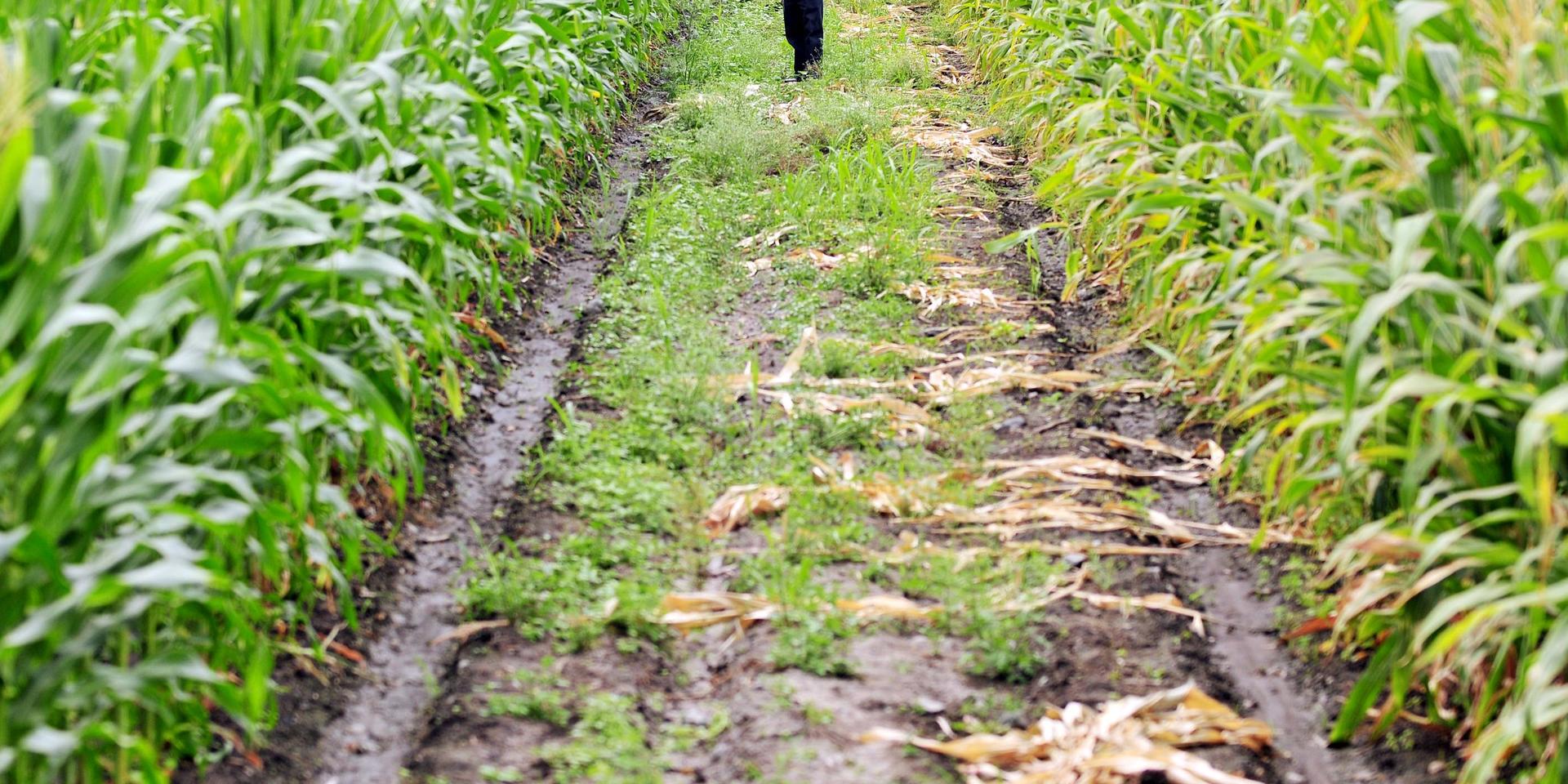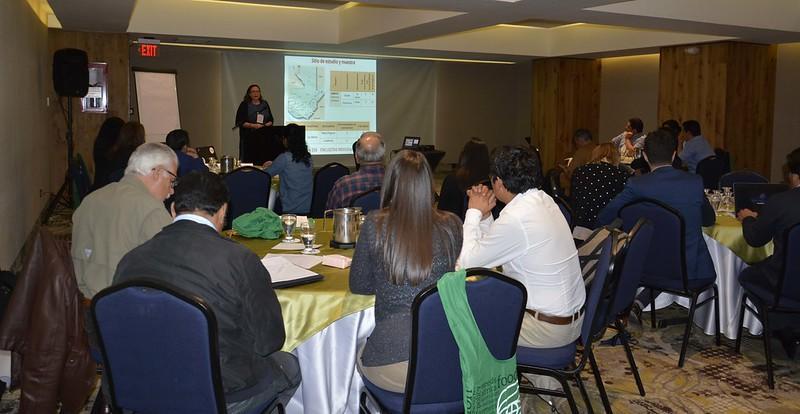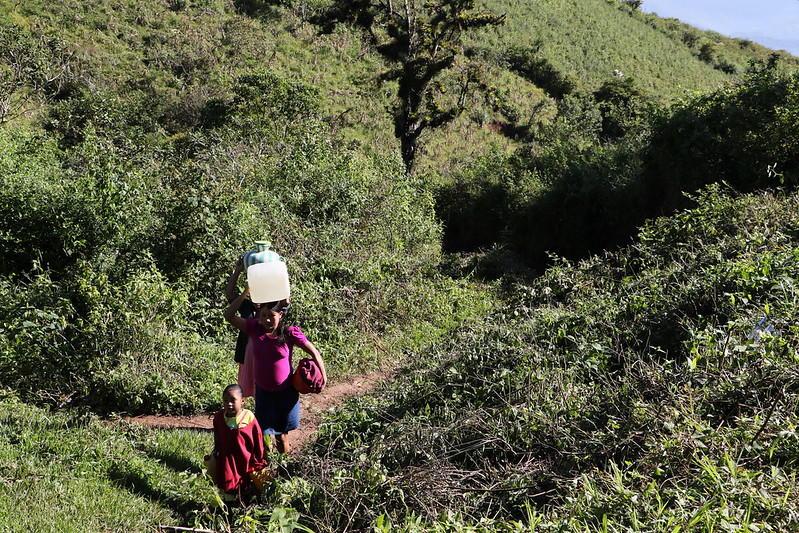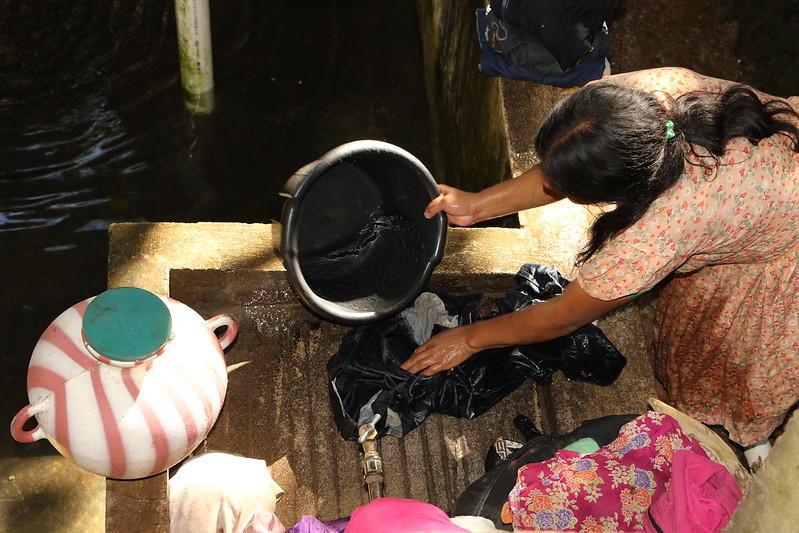Projects and Flagship Initiatives in Guatemala

To address the challenges we seek to resolve in Guatemala and achieve positive impact through our work, we undertake several projects in different parts of the country.
Climate services: building capacities and connecting key stakeholders
The Agroclimatic Technical Tables (ATTs) are an innovative CCAFS initiative that brings together local agricultural stakeholders - especially small-scale producers - to share information about expected climatic changes in their region, how these may affect their crops, and what they can do to reduce negative impacts.
The ATTs generate dialogues between actors in the agricultural sector on climate variability, as well as developing measures and recommendations to reduce crop losses. This approach, together with the identification and evaluation of climate-adapted agricultural practices in a given territory has increased local participation, knowledge exchange, and the creation and strengthening of climate information systems, as well as capacity building in meteorological services.
Guatemala has become one of the most experienced countries in the implementation of climate information services, with the establishment of 15 ATTs and their upscaling across the country.
Agrobiodiversity conservation
The Alliance has developed a Payments for Agrobiodiversity Conservation Services, an incentive mechanism for agricultural biodiversity conservation known as ReSCA, which encourages communities to plant their traditional varieties to ensure food and nutritional security. This initiative has helped protect traditional crop varieties in several countries in Guatemala and across the region. We have also supported the strengthening of the network of community seed banks in the country.

An Alliance led workshop on Nutrition, Gender and Agriculture interventions in Guatemala City, Guatemala. The workshop provided an opportunity to exchange information and experiences on issues related to gender, agriculture and nutrition in Guatemala, among different stakeholders from the private and public sectors, NGOs and academic and research institutions. The main problems in these areas and potential proposals to address them were also identified during the workshop.
©Alliance

This photo is part of a Participatory Photography workshop conducted in Mojon la Mina, Chiquimula, Guatemala. Photography is used as a tool to understand the local needs, knowledge and hopes for the next generation of farmers.
©Alliance/ManonKoningstein

Fetching water, an activity seen as a women's task in Guatemala. ©Alliance/GianBetancourt

Water sources are good places for the gender-targeted distribution of information. They are also a way of socializing amongst women and sharing of information in Guatemala.
©Alliance/GianBetancourt
Maximizing Opportunities in Coffee and Cacao in the Americas (MOCCA)
In Central America and the Andes, a large number of farming families’ livelihoods depend on coffee and cacao production. However, old and unproductive trees, pests and diseases – as well as erratic weather patterns, inefficient market systems and low-value marketing models – affect farmers' ability to make profit and invest in the improvement of their farms’ infrastructure. MOCCA addresses the constraints that prevent farmers from transforming their farms into more profitable enterprises.
The MOCCA Program is a five-year initiative funded by the Food for Progress Program of the United States Department of Agriculture (USDA), and implemented in six countries: El Salvador, Guatemala, Honduras, Nicaragua, Peru and Ecuador (where only cacao was addressed). Covering regions where over 750,000 smallholder farmers produce coffee and cacao, MOCCA supports farmers in overcoming barriers that limit their ability to effectively renovate their coffee and cacao plantations, thus increasing their productivity while improving their marketability and livelihoods in these key value chains.
MOCCA's objectives are:
- Benefit more than 120,000 coffee and cacao producers and 1,230 organizations,
- Integrate more than 40,000 farmers into higher-value business models,
- Support more than 950 greenhouses and gardens to provide high-quality genetic material for planting,
- Provide more than $64 million USD in loans to more than 29,000 farmers, and
- Increase productivity by 33%.
Research on the drought tolerance of common beans in Latin America to cope with climate change (KolFACI)
Weather variation and drought have always been a problem that creates instability in crop production and retail prices. The effects of climate change threaten to worsen these challenges, and forecasts indicate that Central America may see more frequent drought in the coming years.
KoLFACI is a multilateral cooperation initiative that focuses on sharing knowledge and experience in agricultural technology and extension services to promote sustainable agricultural development across Latin American and the Caribbean.
The initiative has implemented numerous projects in 13 member countries: Bolivia, Colombia, Costa Rica, the Dominican Republic, El Salvador, Guatemala, Haiti, Honduras, Nicaragua, Panama, Paraguay, Peru and the Republic of Korea.
Project objectives:
- Selection of crop methods and technologies to reduce GHG emissions on arable land in the project's prioritized countries in Latin America.
- Conduct measurements of GHG emissions by crop and cropping practices in three countries.
- Training of researchers from the five countries.
- Activities will be carried out in close coordination with the Ministries of Agriculture and national agricultural research institutes of the countries that will benefit from the project.
